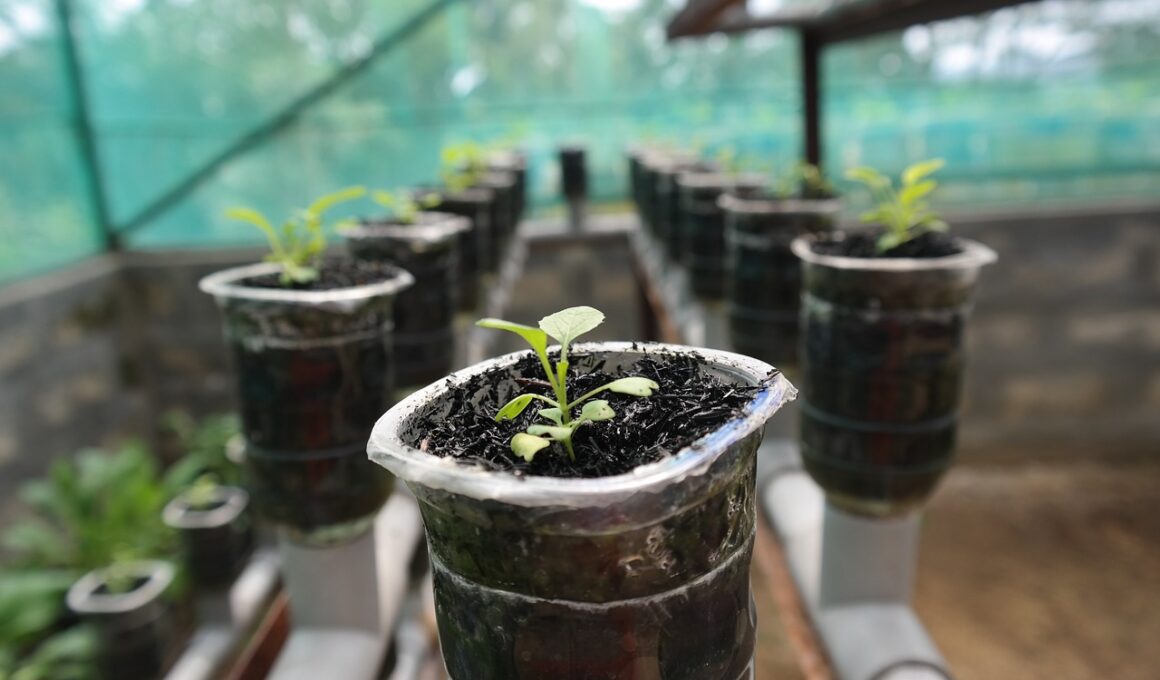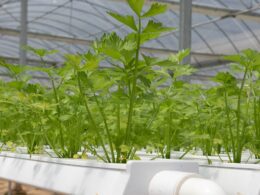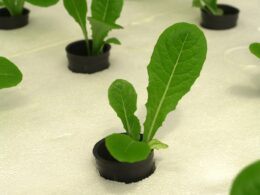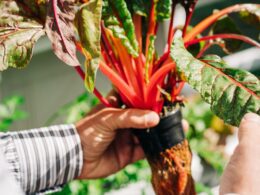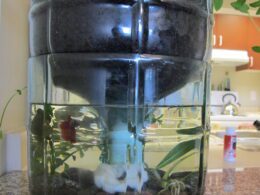If you’re a plant owner, you know how important it is to provide your plants with the right nutrients. But should you use nutrients every time you water? The answer isn’t as simple as a yes or no. It depends on several factors, including the type of plant, the soil, and the stage of growth.
Over-fertilizing can be just as harmful to your plants as not providing enough nutrients. So, before you start adding nutrients to your watering routine, it’s important to understand the risks and benefits.
In this article, we’ll explore the importance of nutrients for plant growth and the potential risks of over-fertilizing. We’ll also discuss the factors you should consider before using nutrients every time you water and offer some alternatives to consider.
Finally, we’ll help you develop a nutrient plan for your plants so that you can provide them with the right amount of nutrients at the right time. By the end of this article, you’ll have a better understanding of whether or not you should use nutrients every time you water your plants.
The Importance of Nutrients for Plant Growth
The growth of plants heavily relies on the essential nutrients they receive. If you want your plants to thrive and produce an abundant harvest, plant nutrition is crucial.
Plant nutrition refers to the essential elements that plants need to grow, such as nitrogen, phosphorus, and potassium. These nutrients are essential for plant growth and development, and without them, your plants will struggle to survive.
Fertilization techniques are essential for providing your plants with the necessary nutrients they need to grow. When you use fertilizers, you’re providing the plants with the essential nutrients they need to grow, develop, and produce an abundant harvest.
However, it’s essential to keep in mind that too much fertilizer can be harmful to plants. Over-fertilizing can cause plants to become burned and damaged, leading to stunted growth and poor yields.
In summary, plant nutrition is essential for plant growth and development. Fertilization techniques are necessary for providing plants with the necessary nutrients they need to grow. However, it’s essential to be careful not to over-fertilize plants, as this can cause damage and stunted growth.
By providing your plants with the right nutrients in the right amounts, you can ensure that your plants will grow strong and healthy, producing an abundant harvest.
The Risks of Over-Fertilizing
Be careful not to harm your plants by giving them too much fertilizer, as this could lead to serious damage. While nutrients are essential for plant growth, over-fertilization can result in nutrient toxicity.
This condition occurs when plants receive more nutrients than they can absorb, leading to stunted growth, yellowing of leaves, and even death. One of the signs of overfeeding is the appearance of burnt or brown edges on the leaves.
This occurs when the excess nutrients accumulate in the soil and cause salt build-up. The impact on the soil microbiome can be severe, as the excess nutrients can kill off beneficial bacteria and fungi. This can affect the soil’s ability to absorb water and nutrients, leading to further damage to the plants.
To avoid over-fertilization, it’s important to follow the instructions on the fertilizer packaging carefully. Don’t assume that more is better, as this can cause irreversible damage to your plants.
Always test the soil before applying any fertilizer to determine its nutrient levels. If you notice any signs of overfeeding, flush the soil with water to remove the excess nutrients and give your plants a break from fertilization until they recover.
Remember, while nutrients are essential for plant growth, too much of a good thing can be harmful. Be mindful of the signs of overfeeding and take steps to avoid nutrient toxicity by following proper fertilization practices. Your plants’ll thank you for it!
Is It Necessary to pH Water Before Adding Nutrients Every Time?
Before adding nutrients, it is crucial to ph water for nutrient addition. Maintaining the right pH levels ensures optimal nutrient uptake by plants. A balanced pH allows plants to access essential minerals, promoting healthy growth. Neglecting pH adjustments may lead to nutrient deficiencies or toxicities, hindering plant development. Hence, pH water for nutrient addition is necessary for successful cultivation.
Factors to Consider Before Using Nutrients Every Time You Water
Before using nutrients every time you water, there are several factors you should consider.
Firstly, you need to take into account the plant species and growth stage, as different plants have varying nutrient requirements.
Secondly, the soil type and quality also play a crucial role in determining the amount and frequency of nutrient application.
Lastly, the quality and pH of the water you use can also impact the effectiveness of nutrients.
By understanding these key points, you can ensure that you’re providing your plants with the right amount of nutrients for optimal growth and health.
Plant Species and Growth Stage
When growing plants, it’s important to consider the specific species and growth stage to ensure proper care. Different plant species have varying nutrient requirements, and applying nutrients every time you water may not be necessary for all plants.
Some plants may only need nutrients during certain stages of growth, such as during the flowering or fruiting stage. In addition to plant species, growth stage is also an important factor to consider when deciding whether to use nutrients every time you water.
Younger plants may not need as many nutrients as mature plants, and over-fertilizing can actually harm their growth. It’s important to monitor plant growth and nutrient levels to determine when and how much fertilizer to apply. By taking into account the specific plant species and growth stage, you can ensure that your plants receive the proper care and nutrients they need to thrive.
Soil Type and Quality
Consider the type and quality of soil you’re using, as this directly impacts the amount and frequency of fertilization needed for your plants to grow strong and healthy.
Soil composition varies, and some soils are naturally richer in nutrients than others. Sandy soils, for example, tend to be lower in nutrient content compared to clay soils, which have a better capacity for nutrient retention. Therefore, sandy soils require more frequent fertilization to ensure proper nutrient levels for the plants.
In addition, the quality of soil can also affect the need for fertilization. Poor quality soil, perhaps due to over-farming or soil erosion, may not have enough nutrients to support plant growth. In such cases, regular fertilization is necessary to replenish the soil’s nutrient content and help the plants thrive.
Therefore, it’s important to assess your soil’s composition and quality before deciding on the frequency and amount of fertilization needed.
Water Quality and pH
Now that you know about soil types and quality, let’s talk about another important aspect of plant nutrition: water quality and pH. Your water source plays a crucial role in determining what nutrients your plants are receiving.
Water hardness, or the amount of minerals like calcium and magnesium in your water, can affect the availability of certain nutrients. For example, high levels of calcium can make it harder for plants to absorb iron.
Alkalinity levels in your water can also impact plant health. If your water is too alkaline, it can make certain nutrients less available to your plants. Conversely, if your water is too acidic, it can make some nutrients more available, but can also damage the roots of your plants.
It’s important to test the pH of your water regularly and adjust it as needed to ensure your plants are receiving the proper nutrients. By paying attention to your water quality and pH, you can optimize your plant’s nutrient intake and ensure they grow strong and healthy.
Alternatives to Using Nutrients Every Time You Water
Using alternative methods when watering your plants can promote healthy growth and reduce the need for constant nutrient application. Organic options are a great way to provide your plants with the necessary nutrients without the use of chemicals.
For example, compost tea is a popular DIY solution that can be made at home by steeping compost in water and then using the resulting liquid to water your plants. This tea is rich in nutrients and beneficial microorganisms that can help your plants grow strong and healthy.
Another alternative to using nutrients every time you water is to simply water your plants with plain water. This may seem counterintuitive, but many plants can survive and even thrive on water alone. Of course, this method works best if your soil is already rich in nutrients and your plants are not experiencing any deficiencies. If you do choose to water with plain water, be sure to monitor your plants closely for any signs of nutrient deficiencies and adjust your watering schedule accordingly.
In addition to organic options and plain water, there are also nutrient-rich additives that can be used sparingly to supplement your plants’ growth. Examples include fish emulsion, kelp meal, and bone meal. These additives can be added to your water once every few weeks to provide an extra boost of nutrients. However, it’s important to use these additives sparingly, as overuse can lead to nutrient burn and other issues.
By incorporating these alternative methods into your watering routine, you can promote healthy growth in your plants without the need for constant nutrient application.
Developing a Nutrient Plan for Your Plants
Let’s create a nutrient plan that’ll keep your plants healthy and thriving.
When developing a nutrient plan, the first thing to consider is the nutrient ratios. Different plants require different ratios of nutrients, so it’s important to research what your specific plant needs.
Once you know the ratio of nutrients your plant requires, you can choose a fertilizer that matches those ratios.
The next thing to consider is the frequency of application. Most fertilizers come with instructions on how often to apply them, but it’s important to monitor your plants and adjust the frequency as needed.
If your plant seems to be thriving with less frequent fertilization, then there’s no need to apply it as often. Conversely, if your plant seems to be struggling, you may need to increase the frequency of application.
Remember, developing a nutrient plan is an ongoing process. You may need to adjust the ratios and frequency of application as your plant grows and changes.
By monitoring your plant’s progress and making adjustments as needed, you can ensure that your plant is getting the nutrients it needs to thrive.
With a little bit of effort and attention, you can create a nutrient plan that’ll keep your plants healthy and strong for years to come.
Frequently Asked Questions
What are the different types of nutrients available for plants and what are their benefits?
If you’re looking to give your plants a boost, you may be wondering what types of nutrients are available and how they can benefit your plants.
There are two main types of nutrients: synthetic and organic. Synthetic nutrients are man-made and provide a quick boost of nutrients to your plants. Organic nutrients, on the other hand, come from natural sources and are slower to release, but provide more long-term benefits to your plants.
The benefits of using nutrients include improving plant growth, increasing yield, and enhancing the overall health of your plants. Whether you choose synthetic or organic nutrients, it’s important to follow the instructions carefully and not overdo it.
Too much of a good thing can be harmful to your plants.
How often should I fertilize my plants if I choose not to use nutrients every time I water?
To maintain your plant’s health, it’s essential to fertilize them regularly. The frequency of fertilization depends on various factors, such as the type of plant, soil quality, and environmental conditions.
If you choose not to use nutrients every time you water, there are alternatives available, such as natural options like compost, manure, and worm castings. These options can provide your plants with the necessary nutrients without resorting to chemical-based fertilizers.
However, it’s important to note that the impact on plant growth may not be as significant as with traditional nutrients. It’s crucial to find a balance that works for your plants and to monitor their growth regularly to ensure they are healthy and thriving.
Can I use organic materials instead of synthetic nutrients to feed my plants?
If you’re looking for a more natural approach to feeding your plants, organic materials can be a great alternative to synthetic nutrients. While synthetic nutrients are designed to provide plants with specific nutrients in a concentrated form, organic materials release nutrients slowly over time, providing a more balanced diet.
One of the main advantages of organic materials is that they can help improve soil health and promote beneficial microbial activity. However, it’s important to note that organic materials may not provide the same rapid growth and high yields as synthetic nutrients.
Ultimately, the choice between organic and synthetic nutrients comes down to personal preference and the specific needs of your plants.
How do I know if my plants are getting too much or too little nutrients?
To ensure your plants are receiving the proper amount of nutrients, it’s important to know how to identify nutrient deficiencies and signs of nutrient toxicity.
Nutrient deficiencies can show up as stunted growth, yellowing leaves, or brown spots. On the other hand, signs of nutrient toxicity can include burnt leaf tips, wilting, or discoloration.
To avoid these issues, it’s important to follow a proper feeding schedule and use the appropriate amount of nutrients. Remember, too much of a good thing can be harmful, so be mindful of the amount and frequency of nutrient application.
By monitoring your plants closely and adjusting your feeding regimen as needed, you can ensure healthy and thriving plants.
Are there any specific plants that require more or less nutrients than others?
Hydroponic plants and soil-based plants have different requirements for nutrients. Some plants, like tomatoes and peppers, require more nutrients than others, such as lettuce and herbs.
It’s important to research the specific needs of your plants before adding any additional nutrients to their water or soil. Overfeeding can lead to nutrient burn, which can harm your plants.
On the other hand, not providing enough nutrients can lead to stunted growth and lower yields. It’s important to find a balance and monitor your plants for signs of nutrient deficiencies or excesses.
With the right understanding of your plant’s needs, you can ensure they receive the appropriate amount of nutrients for optimal growth and health.
Conclusion
So, should you use nutrients every time you water your plants? The answer is: it depends.
While nutrients are crucial for plant growth, over-fertilizing can be detrimental. Before deciding to use nutrients every time you water, consider factors such as soil quality, plant species, and growth stage.
If you do choose to use nutrients with every watering, make sure to follow a nutrient plan tailored to your specific plants. However, there are also alternatives to using nutrients every time, such as incorporating compost or using slow-release fertilizers.
Ultimately, the key is finding the right balance for your plants’ needs. With a little research and experimentation, you can help your plants thrive and reach their full potential.





